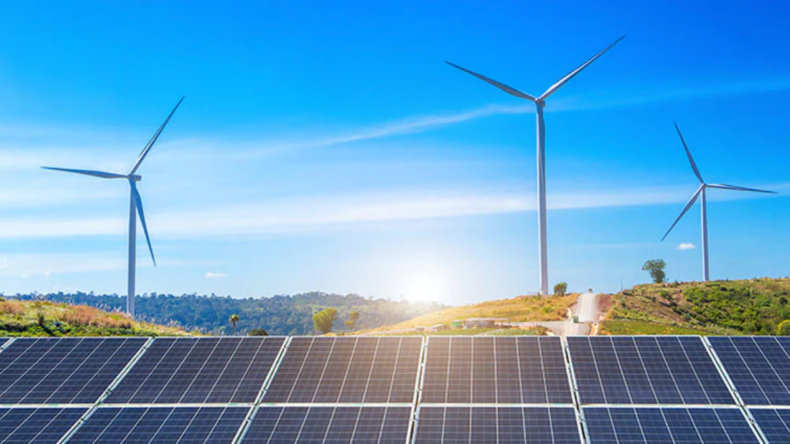Fourth General Assembly of International Solar Alliance Concluded Promise to Achieve $ 1 Trillion Global Investment in Solar Energy by 2030.
Fourth Virtual General assembly presided by R.K Singh, Union Minister of Power, New and Renewable Energy (Government of India), of International Solar Assembly (ISA) set an objective to invest 1 Trillion dollars in solar energy by 2030. This move will help to combat climate change and other associated issues.
ISA announced a partnership with Bloomberg Philanthropies to mobilize $ 1 Trillion in ISA member countries. 108 ISA member countries attended the assembly. The United States Special Presidential Envoy for Climate, John Kerry and European Commission Executive Vice President Franz Timmermans, also delivered a keynote address.
R.K Singh emphasized the need to ensure equitable access to clean energy for all. “It is time for all of us to get together to make energy access using solar and renewable energy available. We have successfully done this in India, and it can be replicated globally,” said the Minister.
Minister further expressed intention that ISA can help 80 crore people across the globe to access clean energy. “It is time for developed countries to help developing countries with technical and financial capabilities as promised earlier in various climate conferences”, Minister further added.
ISA is a global alliance established by India and France at the Conference of Parties 25 at the United Nations Framework Convention on Climate Change (UNFCCC). Initially, the alliance was open for Solar rich countries lying between the Tropic of Cancer and Tropic of Capricorn; later, the doors of the coalition was opened for all 193 United nation members.
The primary objectives of the alliance are to work towards implementation of the Paris Agreement, 2015, Increase the deployment of share of Solar energy, Lower greenhouse gas emissions, Mobilize $ 1 Trillion investment in Solar energy by 2030 and Install 1000 Giga Watt (GW) Solar energy by 2030.
India is leading the transition towards the adoption of renewable energy. Prime Minister Narendra Modi this year expressed the idea of One Sun One World One Grid to make a global interconnected renewable energy grid. India has 100 GW of installed renewable (Solar and Wind).
India also set an aim to install 500 GW of clean energy by 2030. Central Government also introduced some policy measures to promote the adoption of clean energy. Five per cent Interest Subvention scheme is presented for business investment in manufacturing solar panels, Ingota and Wafers.
100% FDI is allowed in the manufacturing of Solar panels (will reduce import dependences). ISA will facilitate technical and financial aid towards the adoption of renewable energy. SRISTI Scheme promotes rooftop solar projects.
PM KUSUM Yojna aims to install solar pumps at farms. The government (State and Center) prioritize Domestic equipment in Government-backed solar projects. National Thermal Power Corporation (NTPC) is aiding the installation of floating solar power plants, i.e. At Omkareshwar (Madhya Pradesh), Ramagundam (Telangana).
Union is buckling up to set up Three Power Gear Manufacturing Zones (having adequate infrastructure and testing facilities) each at Coastal, Hilly and Landlocked States. India has the largest Hybrid Renewable Energy Park at Khadva, Gujarat.
Several issues are associated with scaling up domestic production of solar panels and other required inputs. There’s a high cost of production for businesses due to the lack of modern technology and economies of scale. Solar cell manufacturing is complicated technology and requires a handful of capital and a skilled workforce.
There’s a shortage of Land availability which is essential to produce and install solar energy projects. State Distribution companies often delay payment to Renewable energy producers, which de-incentivize private players.
The way forward is to mobilize long term finance by leveraging the capabilities of multilateral and bilateral agencies. Public Sector Undertakings can lease their surplus land. General Governments can skill youth to provide a skilled workforce to private industry.
On-time payment to renewable energy producers can incentivize producing more power. Expediting Foreign Direct Investment can pull required capital and technical skills. Adoption of clean energy is a must in climate change, affecting every individual from Farmers to Urban dwellers.












